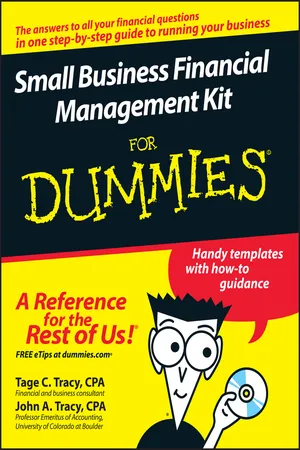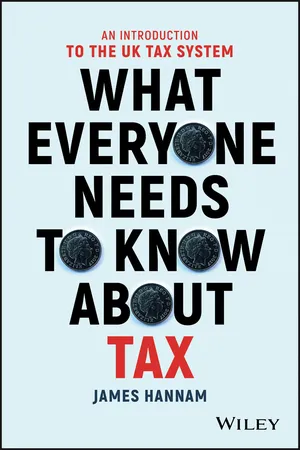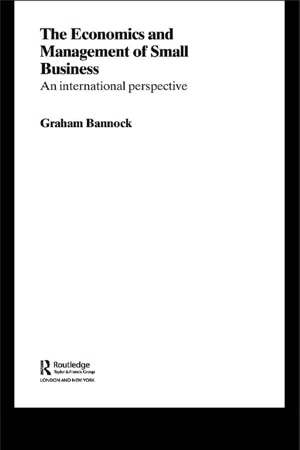Business
Tax on Business
A tax on business refers to the financial obligation imposed by the government on businesses, typically based on their income, profits, or activities. This tax revenue is used to fund public services and infrastructure. Businesses are required to comply with tax laws and regulations, and failure to do so can result in penalties or legal consequences.
Written by Perlego with AI-assistance
3 Key excerpts on "Tax on Business"
- Tage C. Tracy, John A. Tracy(Authors)
- 2011(Publication Date)
- For Dummies(Publisher)
In this world nothing can be said to be certain except death and taxes.” Most people would agree that this statement is not only one of the most widely known and referenced but in addition, extremely accurate. In this chapter, we focus on business taxation and regulatory mandated costs burdening businesses today. Thinking about Business Taxes Two general thoughts should be kept in mind with business taxes: Identifying and securing the appropriate taxation professional counsel can be worth its weight in gold. The volume and complexity of business taxation issues has exploded during the past 20 years to the point where it has become almost impossible to stay in 100 percent compliance with every taxing and regulatory authority. Given this environment, it’s important to remember that a business is both a taxpayer and tax collector for foreign, federal, state, and local governments. If there ever has been a business management function that requires and/or can benefit from external professional counsel, taxation is it. By professional counsel, we either mean an accounting professional, CPA, or, if needed for more complex issues, a tax attorney. Tax planning and compliance represent an essential element of a successful business plan requiring proactive management. A business owner or manager must understand what triggers tax compliance and obligation requirements in addition to the different types of business taxes present. Executing a business decision as simple as expanding the company’s geographical market by adding a new sales representative in a new state is often much easier said than done. This decision can carry with it a requirement to comply with a series of new licensing, taxation, and regulatory mandated costs that may erode profits and consume expensive management time and resources- eBook - ePub
What Everyone Needs to Know about Tax
An Introduction to the UK Tax System
- James Hannam(Author)
- 2017(Publication Date)
- Wiley(Publisher)
Chapter 4 Taxes on businessTaxing business
Business is the way that a country makes its way in the world. We need businesses to generate the money and provide most of the goods and services that we consume day by day. Almost all businesses are in the private sector and they range from sole traders, such as a man with a van or a self-employed gardener, all the way up to the largest companies, like the oil giant BP and the pharmaceuticals leviathan GlaxoSmithKline.Much of the money that businesses make is spent on paying the people who work for them. That's as true for a self-employed builder (who is only paying himself) as it is for the biggest multinationals. We noted in Chapter 1 how businesses pay over the income tax and national insurance on our salaries to the government. And in Chapter 2 we saw that businesses are also responsible for collecting VAT (although we are the ones who pay it). But the administration of these taxes is no doddle and it is firms that have to pay the penalties if they mess it up. The UK's tax collection system has effectively been privatised. While HMRC is nominally responsible, it has subcontracted most of the donkey work. Getting businesses to pay our taxes for us has the advantage of ensuring that we stay largely ignorant of just how much we pay. It's the Third Golden Rule, keeping taxes invisible, in action.Tax on the self-employed and small businesses
If you are self-employed, the taxman will charge income tax and national insurance on all your earnings from your business after deducting expenses. You end up paying about the same amount of tax as you would if you were being paid a salary equal to your profits by an employer. There are a couple of advantages to self-employment. You pay slightly lower national insurance and don't have to pay employers' NICs. (Although you do have to cough up a small extra amount of national insurance called Class 2 contributions of about £145 a year. This trivial and fiddly tax is due for abolition.) You also don't always have to pay the tax you owe immediately. Sometimes you can defer the tax on your profits for 20 months after you have earned them. - eBook - ePub
The Economics and Management of Small Business
An International Perspective
- Graham Bannock(Author)
- 2004(Publication Date)
- Routledge(Publisher)
VAT has, moreover, exceptionally heavy compliance costs which are discussed below. 7 The growing complexity of the tax system can be measured only indirectly, for example by counting the numbers of pages in the relevant legislation. The fairly drastic simplifications in the US 1986 Tax Reform Act, discussed briefly below, still left a document of 1,600 pages. Adam SMITH (1776) wrote of taxes that ‘the time of payment, the manner of payment, the quantity to be paid, ought all to be clear and plain to the contributor, and to every other person’. He went on ‘the certainty of what each individual ought to pay is, in taxation, a matter of so great importance, that a very considerable degree of inequality, it appears, I believe, from the experience of all nations, is not near so great an evil as a very small degree of uncertainty’. In all countries now, over two-and-a-quarter centuries later, we are so far from this ideal that uncertainty deriving from complexity is itself a grave source of inequality, since the capacity of people (and firms) to understand or pay for professional advice varies so much. 8 This section on taxation has drawn heavily on BANNOCK & PEACOCK (1989). 9 No one has found a satisfactory way of measuring the incentive effects of taxation, or even of the incidence of tax. It can be argued that people may work harder to compensate for the effects of tax but it is possible that the effects vary with the level of income, particularly where taxes are progressive, so that beyond a certain point taxes create a real disincentive for further effort. The incidence of business taxation is also uncertain: firms may pass on taxes wholly or partly to their customers. In this case, it is more likely that large firms with greater market power could shift taxes forward to the consumer than small firms. The impact of death taxes on business survival is also uncertain
Index pages curate the most relevant extracts from our library of academic textbooks. They’ve been created using an in-house natural language model (NLM), each adding context and meaning to key research topics.
Explore more topic indexes
Explore more topic indexes
1 of 6
Explore more topic indexes
1 of 4


